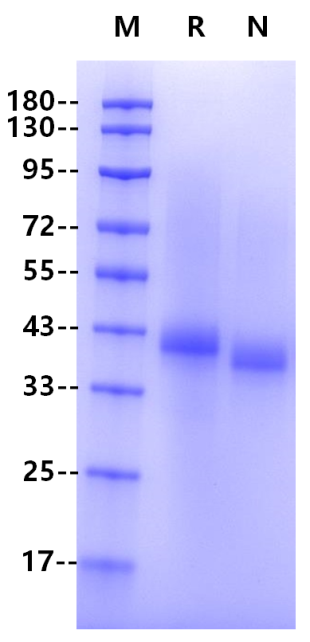Low affinity immunoglobulin epsilon Fc receptor (CD23) is a type II membrane protein secreted by single channel. CD23 is a B cell specific antigen and a low affinity receptor of IgE, which plays an important role in regulating the production of IgE and the differentiation of B cells. CD23 exists as a soluble secretory form and then acts as an effective mitotic growth factor. The increase of soluble CD23 level will lead to the recruitment of unsensitized B cells when antigen peptides are presented to sensitized B cells, thus increasing the production of allergen-specific IgE. IgE in turn upregulates the expression of CD23 and Fc epsilon RI (high affinity IgE receptor). Unlike many antibody receptors, CD23 is a C-type lectin expressed on mature B cells, activated macrophages, eosinophils, follicular dendritic cells and platelets. The IgE immune complex binds to CD23 molecules on B cells and transports them to the B cell follicles of the spleen, then the antigen is transferred from CD23+B cells to CD11c+ antigen presenting cells, and CD11c+ cells in turn present the antigen to CD4+T cells, which can lead to enhanced antibody response.
